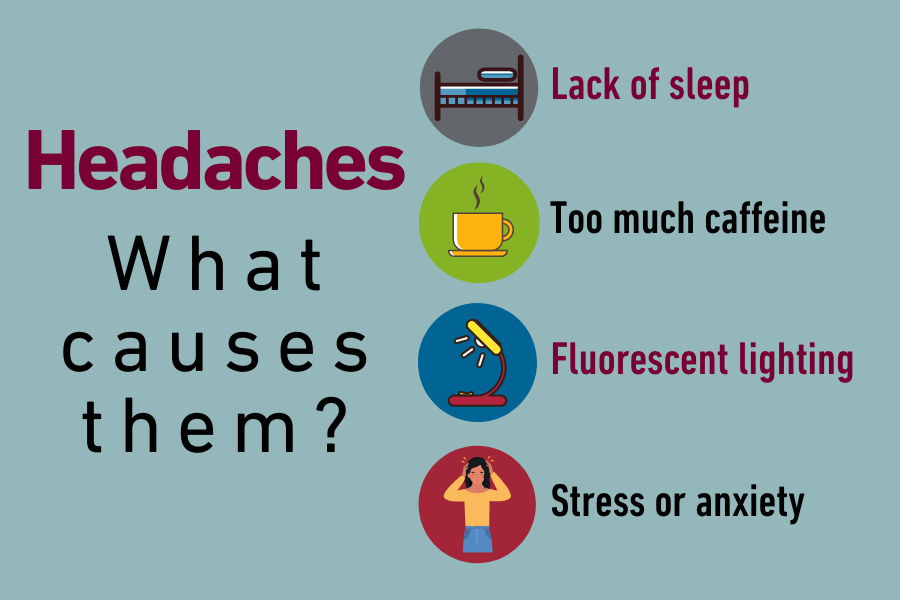What Is a Tension Headache?
A tension headache involves pain, pressure or tightness in your head, scalp or neck. Tense neck and scalp muscles can trigger a tension headache. Your muscles may contract if you’re stressed, sad or anxious, or endure a trauma such as a head injury.
Causes of tension headaches can include:
- Holding your head in one position for a long time
- Sleeping in a cold room
- Sleeping with your neck in an awkward position
- Physical or emotional stress
- Alcohol abuse
- Food sensitivities
- Caffeine use or withdrawal
- Colds, flu or sinus infections
- Teeth-grinding or jaw-clenching
- Eyestrain
- Smoking
- Fatigue
Symptoms
Tension headache symptoms vary. A headache may occur once, constantly or daily. Stress, fatigue, noise or glare can trigger or worsen it.
Headache symptoms include:
- Dull pressure
- Feeling like you have a tight band around your head
- Pressure from all sides
- Pressure in scalp, temples, shoulders or in the back of your neck
- Difficulty sleeping
Life-Threatening Brain Disorder Symptoms
Call 911 if you have:
- Abrupt, severe headache
- Unbearable pain
- High fever
- Balance loss
- Speech, vision or movement problems
- Sudden headache
- Vomiting
Treatment Options
Mild to moderate tension headaches may stop without treatment. Tell your doctor about changes in headache patterns or pain.
Chronic (long-term) headaches can interfere with life and work. Treatment focuses on relieving symptoms and preventing triggers.
These steps may help:
- Track headache triggers so you can avoid or manage them.
- Tell your doctor about patterns or suspected triggers.
- Consider exercises, meditation or biofeedback to relax muscles and manage stress.
- Cognitive behavioral therapy can help identify and manage causes.
- Massage sore muscles and consider seeing a massage therapist.
- A physical therapist can help with exercises or adjustments to work stations and daily activities.
- Keep warm if cold temperatures trigger headaches.
- Change your sleeping positions, pillow or posture.
- Practice good posture when reading, working or doing other activities.
- Exercise your neck and shoulders – especially when using electronic devices or doing close or repetitive tasks.
Ready for an Appointment?
If you're experiencing signs or symptoms of a tension headache, schedule an appointment or call 800-TEMPLE-MED (800-836-7536) today.
Learn more about our doctors and care team who diagnose and treat tension headaches.

